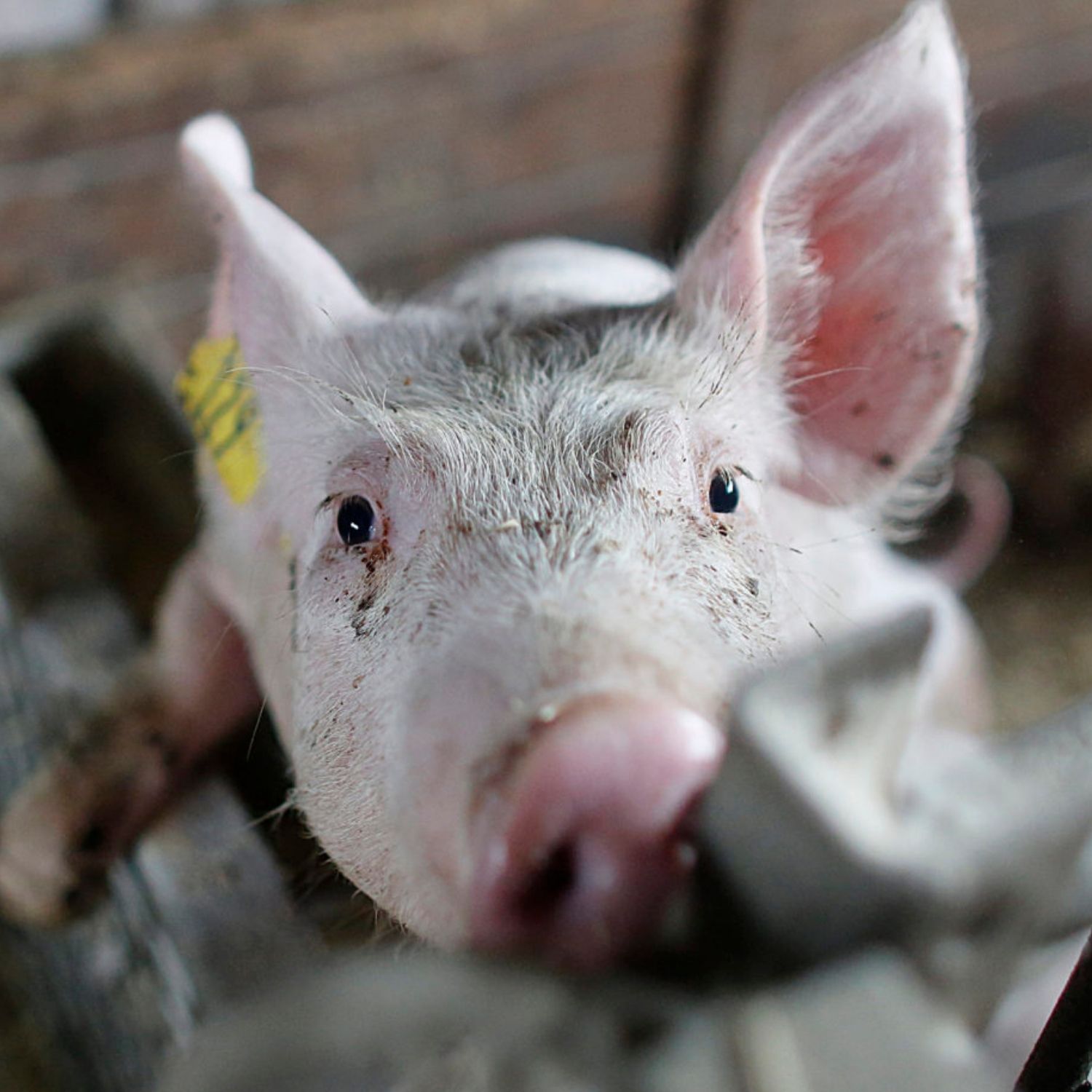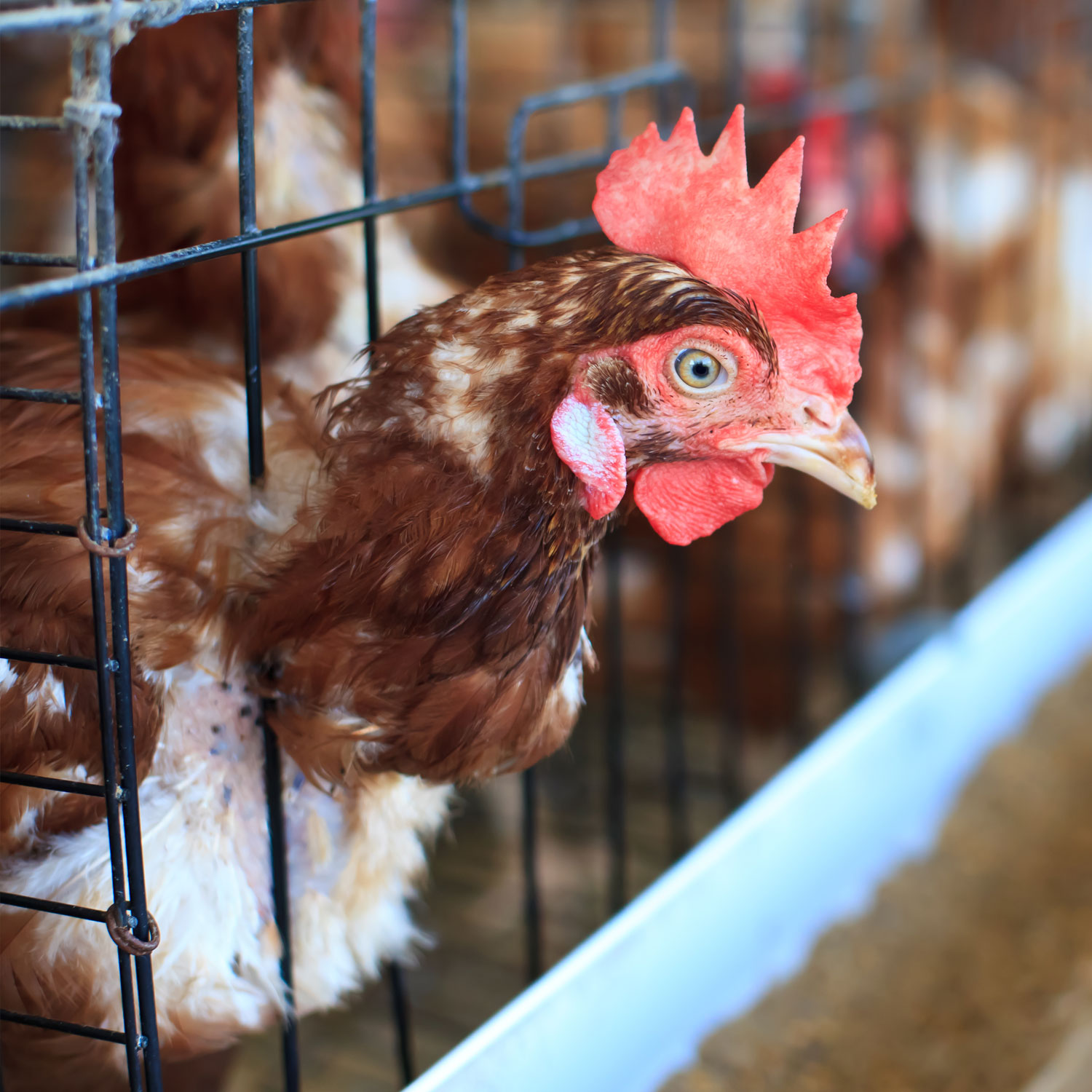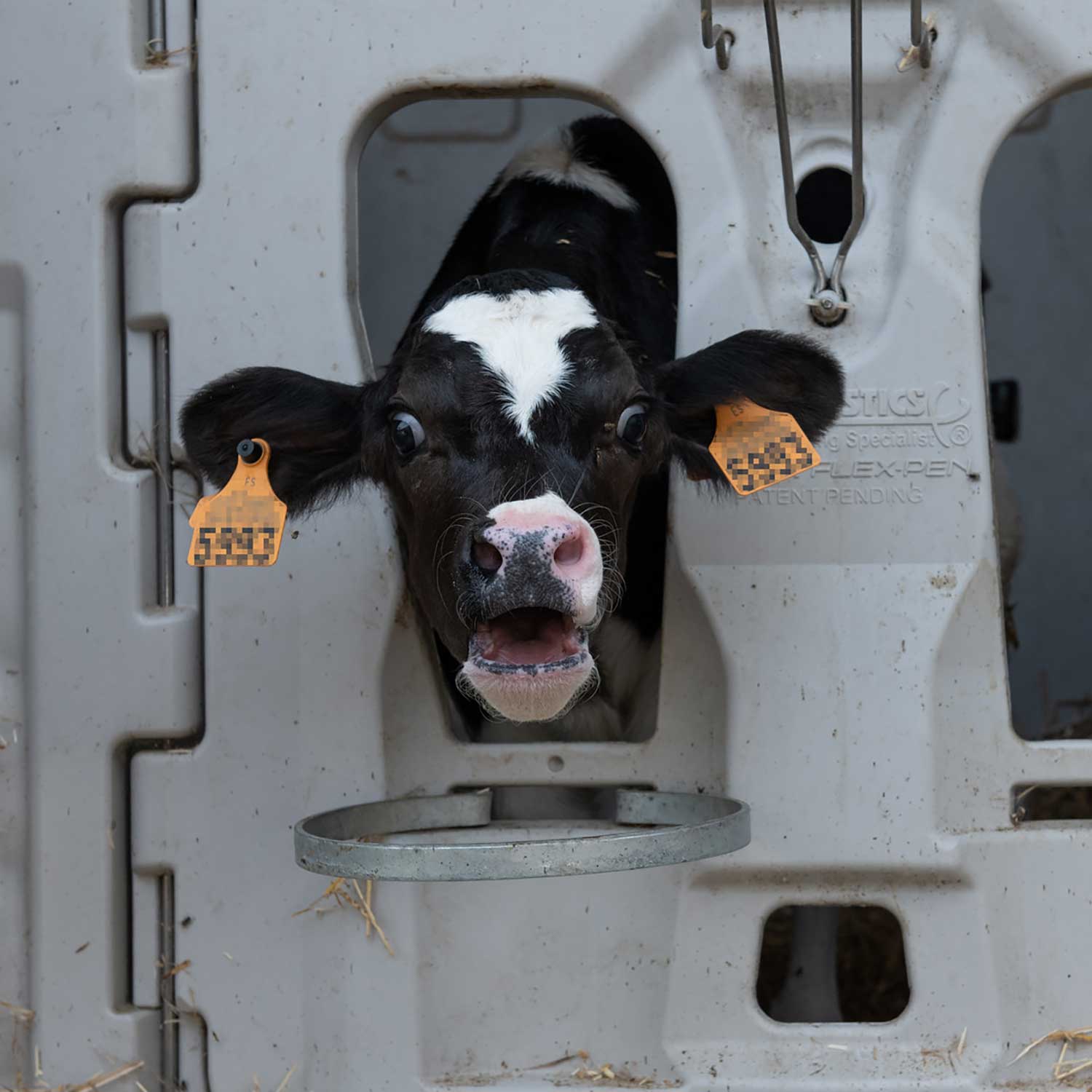Changing laws for animals in Mexico: Everything you need to know

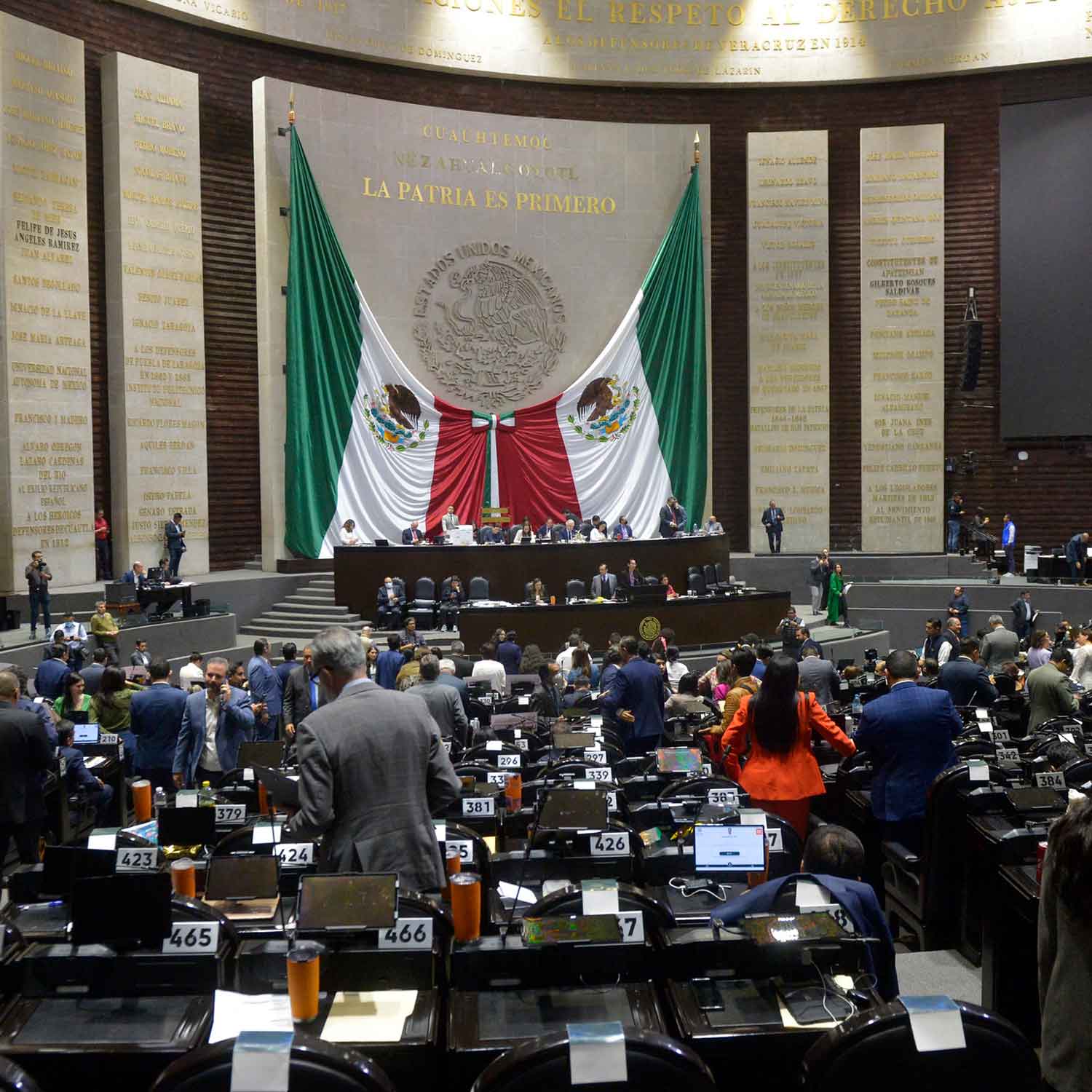
Animal Equality in Mexico is shaping the future for farmed animals with legislative reform. Advocates are working on two levels—reshaping the food system and plant-based options nationally, while strengthening farm rules locally.

Here’s how Animal Equality is making change happen, from the top down and the grassroots up.
National reforms: a new path for food and transparency
The Adequate and Sustainable Food Law
In March 2024, Mexico’s lower house passed the General Law on Adequate and Sustainable Nutrition. Supported by Animal Equality, this law promotes plant-based foods and highlights how food choices affect the environment.
Pushing cage-free regulations on all fronts
In September 2023, Animal Equality in Mexico supported a law to help the Federal Consumer Protection Agency regulate cage-free production. Animal Equality’s goal is to ensure these terms truly mean better treatment for animals, protecting consumers from misleading claims.
Crackdown on illegal slaughterhouses
Since April 2020, Animal Equality has pushed for two major changes in Mexico: a ban on selling live animals in markets and a crackdown on illegal slaughterhouses–with strict penalties for those operating them.
Making animal cruelty a federal crime
In March 2017, Animal Equality pushed to make animal cruelty a federal crime by amending the Federal Animal Health Law and Penal Code. Over 100 animal protection groups backed the campaign. In October, TV host Marco Antonio Regil joined the cause. At a Senate event, he called for stronger laws to stop the abuse exposed by Animal Equality’s investigators.
State developments break ground across Mexico
Aguascalientes
In November 2023, Animal Equality launched an initiative to create some of Mexico’s first legal protections for farmed animals during breeding.
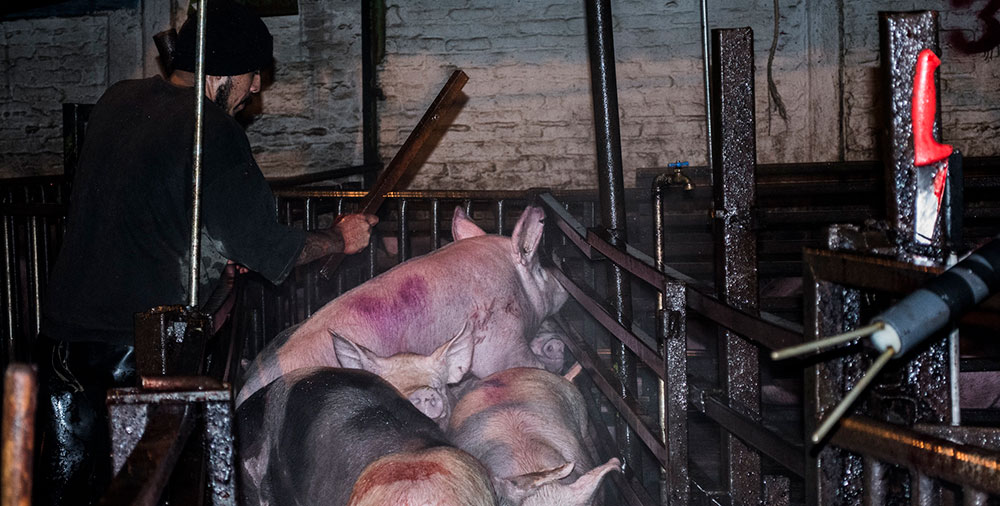
Chiapas
In May 2023, Animal Equality launched a campaign to make animal cruelty a crime in Chiapas, the last state in Mexico without such laws. This effort could protect over 100 million farmed animals.
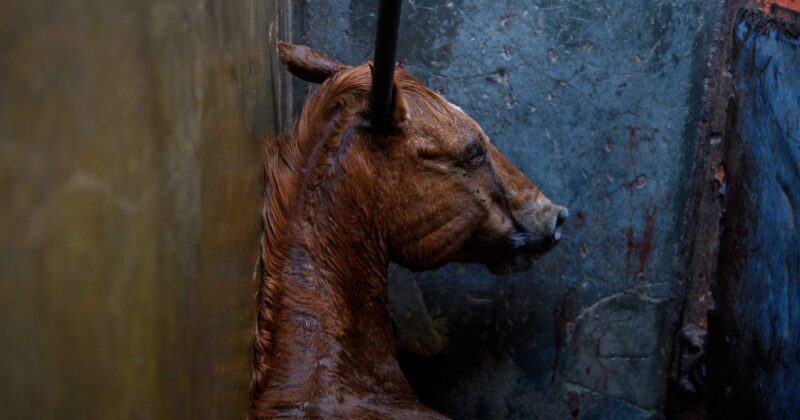
Colima
In July 2024, Colima’s Congress unanimously passed a law to protect farmed animals. This makes it the second state to include an entire chapter on farmed animal protection.
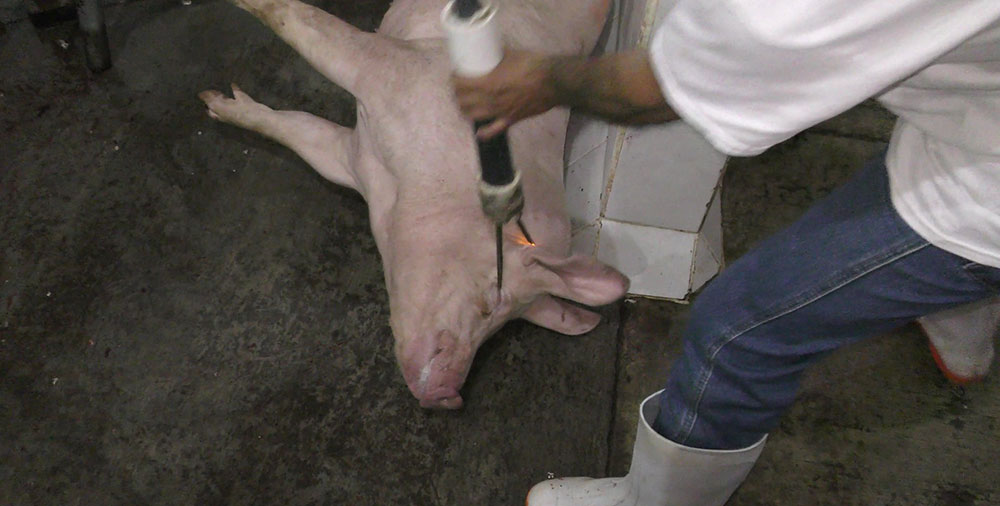
Hidalgo
In December 2021, Animal Equality proposed a bill in Hidalgo’s Congress to make cruelty to farmed animals a crime. By June 2022, the bill became law, making Hidalgo the first state in Mexico to protect farmed animals while they’re still on farms. Previously, regulations only covered their transportation and slaughter.
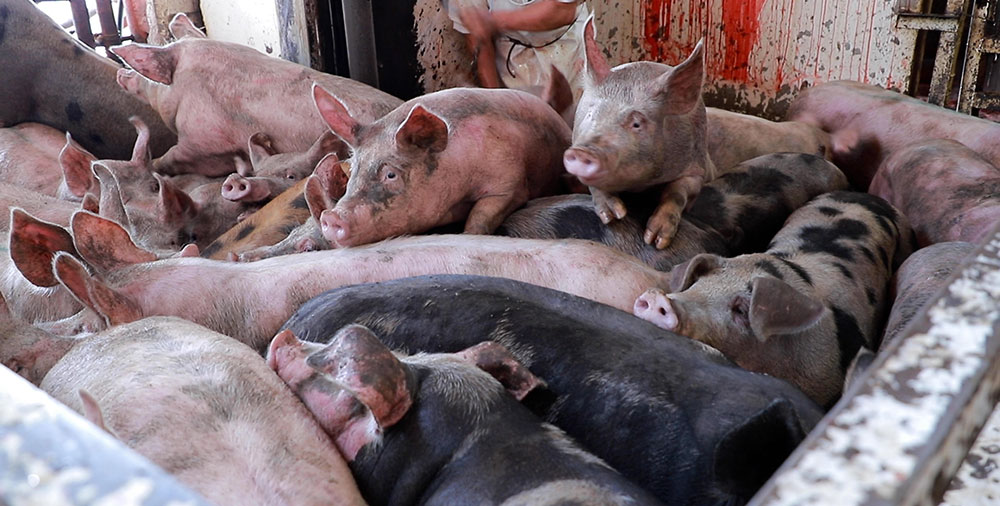
Jalisco
Animal Equality’s efforts in Jalisco started in 2017, resulting in a 2019 law that criminalized farmed animal cruelty. Offenders now face up to four years in prison, with additional protections proposed in 2021.
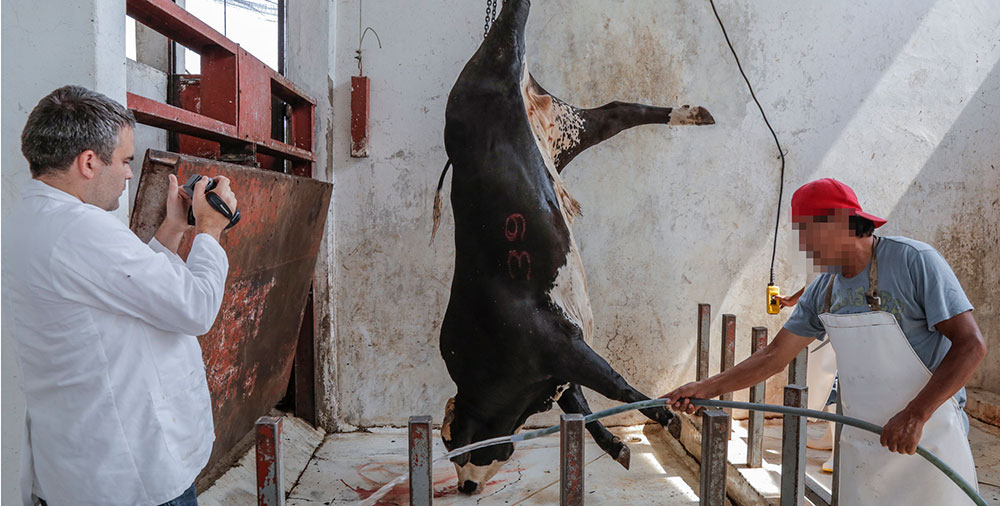
Nuevo León
In July 2022, Animal Equality proposed amending Nuevo León’s Constitution, recognizing that animals can feel pain and emotions. By November 2023, advocates backed another proposal to introduce legal protections for farmed animals during breeding.
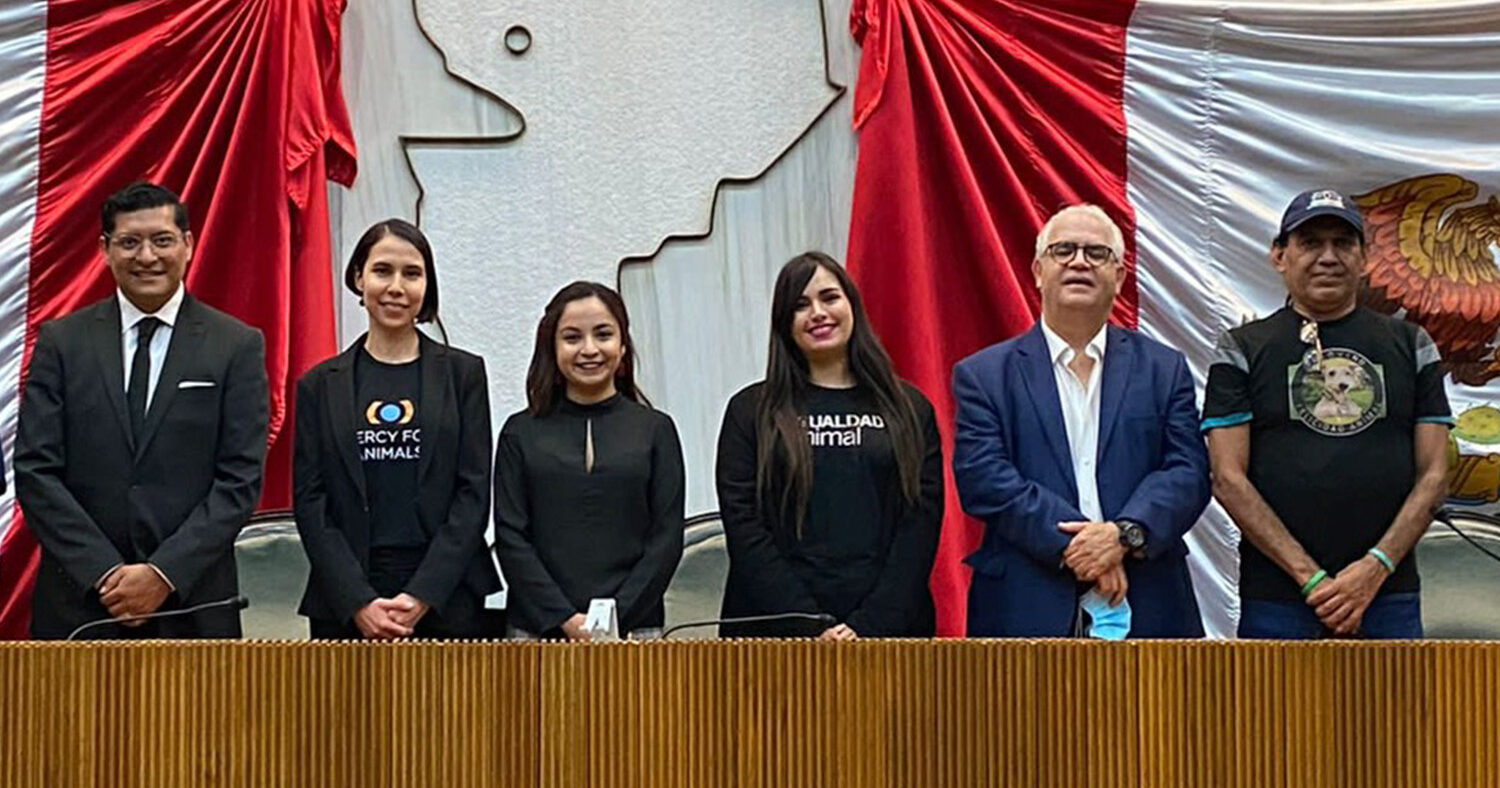
Oaxaca
In May 2024, the Oaxaca Congress highlighted Animal Equality’s investigations and efforts in a report called Reality of Slaughterhouses in Mexico: The Oaxaca Case. Later, in November, Oaxaca’s Congress unanimously approved the state’s first Animal Protection and Welfare Law. This makes Oaxaca the third state to protect farmed animals during breeding and slaughter.
Puebla
After backing laws to ban unregulated slaughterhouses and live animal market slaughters, Animal Equality pushed for further reforms in June 2023. These proposals included protection on farms, mandatory video surveillance in slaughterhouses and a ban on force-feeding.
Quintana Roo
In July 2023, Animal Equality backed an initiative to amend Quintana Roo’s Animal Welfare Law, aiming to strengthen protections for farmed animals throughout the state.
Veracruz
In January 2023, Animal Equality supported a bill in Veracruz to protect farmed animals. If approved, it would guarantee access to food, water, and space, while banning confinement and slaughter without proper stunning.
City reforms: building animal protection from the ground up
Mexico City
In February 2023, Mexico City enacted laws to close unregulated slaughterhouses, imposing penalties on offenders. This move built on earlier efforts to ban street vendors from selling or slaughtering live animals.
Naucalpan de Juárez
In December 2020, Naucalpan de Juárez became the first city in Mexico to mandate video surveillance in slaughterhouses.
Zapopan
In July 2020, Zapopan became the first city in Mexico to regulate farmed animal protection, mandating stunning before slaughter, banning mutilation, and ensuring veterinary care.
U.S. advocates take action
The fight for animals extends beyond Mexico. Right now, the U.S. is at a critical point as Congress debates the Farm Bill. Renewed every five years, this legislation shapes the nation’s food and farming system.
Animal Equality’s investigations reveal cruelty on factory farms around the world–including the U.S. Hens are left to die in cages, mother pigs are trapped in crates too tight to turn around, and calves are taken from their mothers soon after birth.
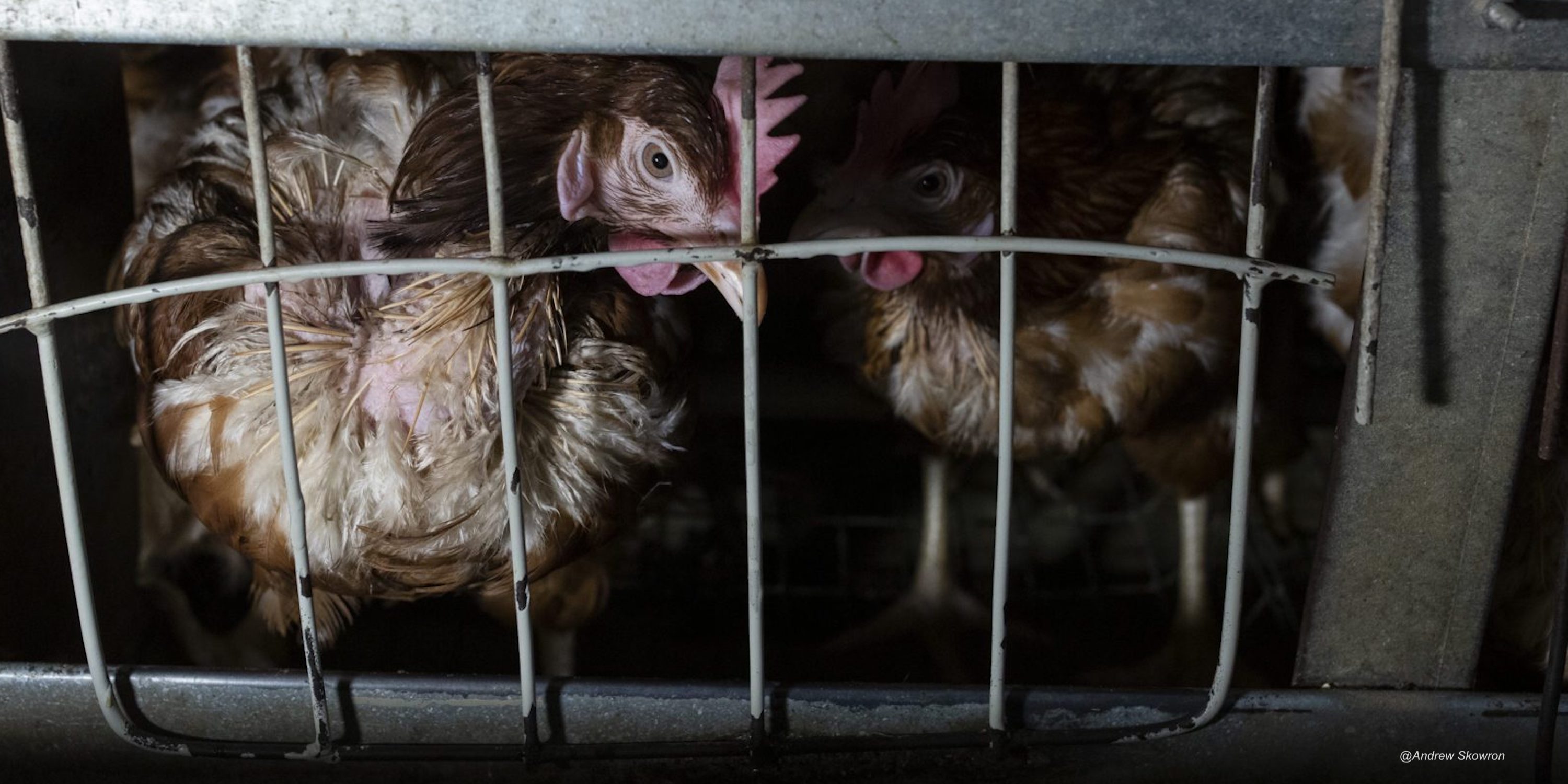
The future of the Farm Bill will impact millions of these animals. The House version includes language that could block states from banning cruel practices, like confining hens, pigs, and calves in tiny cages.
Meanwhile, the Senate version has a chance to include the SAFE Act, which would stop the export of U.S. horses for slaughter in Mexico and Canada.
Write to your representatives today—urge them to reject harmful language in the Farm Bill and support the SAFE Act.
Change starts in your kitchen
Changing laws takes time, but you can make an immediate impact at every meal.
The best way to make a difference is by choosing plant-based alternatives to meat, dairy, and eggs. Every meal brings us closer to a kinder, healthier world, and you’ll join a growing community stretching from the U.S. to Mexico and beyond.
Ready to start? Visit Love Veg for easy, delicious recipes and see how your plate can spark change.
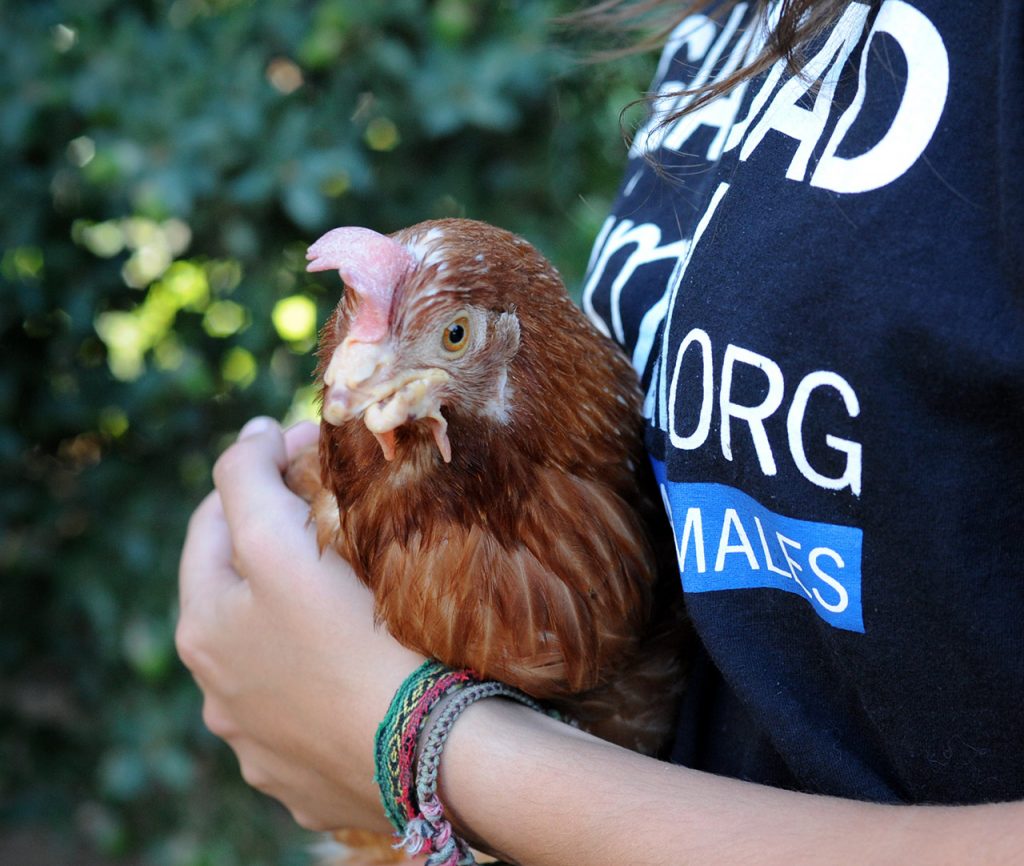
LIVE KINDLY
With rich emotional lives and unbreakable family bonds, farmed animals deserve to be protected.
You can build a kinder world by replacing animal food products with plant‑based ones.

